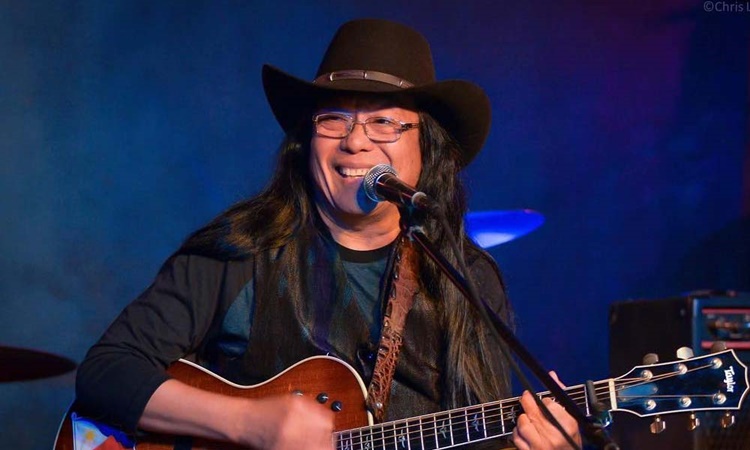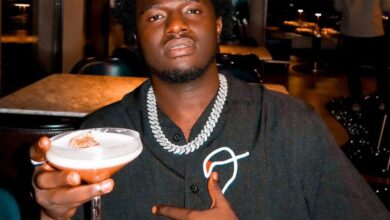Freddie Aguilar Dies at 72 – The Full Life Story of the Man Behind “Anak”

Farewell to a Legend: Freddie Aguilar Dies at 72 – The Full Life Story of the Man Behind “Anak”
Freddie Aguilar, the Voice of a Nation, Passes Away at 72
The Philippines—and the world—lost a musical icon on May 27, 2025. Freddie Aguilar, the legendary folk-rock singer best known for his emotionally powerful song “Anak”, passed away at the age of 72. He died at the Philippine Heart Center in Quezon City at around 1:30 AM due to cardiac arrest brought on by kidney complications and pneumonia.
Aguilar’s death leaves a permanent void in the hearts of millions of Filipinos who grew up listening to his soulful voice and felt seen through the stories he told in song.
Early Life: The Making of a Troubled Genius
Ferdinand Pascual Aguilar was born on February 5, 1953, in Santo Tomas, Isabela, Philippines. He grew up in a conservative Catholic family and began playing the guitar at the age of nine. Despite being encouraged by his father to pursue law, Aguilar followed his heart. He left home at 18 after a personal falling out with his father, an experience that would later inspire his biggest hit, “Anak.”
Aguilar’s early struggles included living in poverty, performing in bars and small gigs, and grappling with the hardships of being a young, aspiring musician in a politically unstable country. But even then, his music stood out—raw, emotional, and socially conscious.
The Song That Changed Everything: Anak
In 1978, Freddie Aguilar wrote and released “Anak”—a song inspired by his own rebellion and reconciliation with his parents. It would go on to become one of the best-selling Filipino songs of all time, with more than 33 million copies sold worldwide. It was translated into over 25 languages and topped charts across Asia, Europe, and the Middle East.
“Anak” wasn’t just a hit—it became a cultural phenomenon. Its themes of remorse, family, and redemption struck chords in listeners from all walks of life. To this day, it remains a staple in Filipino homes, karaoke nights, and classrooms.
Beyond Music: A Political Voice for the People
Freddie Aguilar was more than just a singer—he was a voice of the people.
He became a powerful figure in political activism, especially during the Martial Law era under President Ferdinand Marcos. His rendition of “Bayan Ko” became a protest anthem and the unofficial soundtrack of the 1986 EDSA People Power Revolution that ousted the dictatorship.
Unlike many artists, Aguilar refused to water down his lyrics for commercial success. His songs like “Mindanao,” “Magdalena,” and “Luzviminda” spoke boldly about poverty, inequality, corruption, and injustice. He was never afraid to challenge the system or call out leaders, regardless of political affiliation.
Personal Life: Controversies and Devotion
Freddie Aguilar’s personal life also attracted public attention. In 2013, he shocked many by revealing his relationship with a 16-year-old girl named Jovie Gatdula Albao. The relationship drew widespread criticism due to their age gap, but the couple later married under Islamic rites after Aguilar converted to Islam. He defended the union, saying they had the blessing of her parents.
He had four children from a previous relationship and remained close with his family despite his early rebellious years.
In 2018, a fire broke out in Aguilar’s Quezon City home, destroying decades of memorabilia and musical archives. Despite this setback, he continued to perform and remained active in the music scene up until his health started to decline.
Final Days and Public Tributes
In the months before his passing, Aguilar was in and out of the hospital for kidney-related issues. His wife, Jovie, kept fans updated through social media, asking for prayers and expressing gratitude for the overwhelming support.
His death triggered an outpouring of grief and tributes from fellow musicians, political figures, and fans. Hashtags like #RIPFreddieAguilar and #SalamatFreddie trended across Philippine social media.
A Lasting Legacy
Freddie Aguilar leaves behind a legacy that few artists can ever hope to match. He wasn’t just a singer or songwriter—he was a storyteller, an activist, and a patriot. Through his music, he gave voice to the unheard, comfort to the broken, and pride to an entire nation.
His songs will continue to be played, studied, and remembered for generations to come.
“Anak, bakit ka nagkaganyan?” — the opening line of Aguilar’s most famous song is now echoed by a grieving nation asking how they will fill the void left behind.
Rest in peace, Freddie Aguilar. Your voice may be silent, but your song lives on forever.




